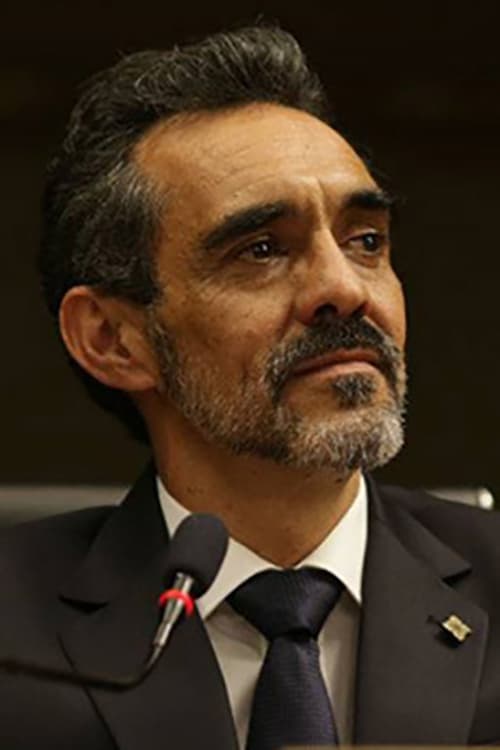Alfredo Espinoza
出生 : 1970-12-14, Quito, Ecuador
略歴
Alfredo Espinosa is an Ecuadorian actor. He has a long career in theater, film and television. He has worked in feature films "Tan distintos", "Un secreto en la caja", "Mono con Gallinas", "El facilitador", "Tinta sangre", "Sed", "Feriado", and "Distante cercanía". He directs the experimental theater company Magmateatro.

Soledad is trapped in quarantine with a new partner she has recently been dating. The objects of his old relationship still flood his house and denounce a presence that has not disappeared. One night, the memory of the ex-boyfriend materializes in Soledad's bed and the three of them wake up in a bizarre and uncomfortable situation. From that moment they cannot free themselves from the memory and the three end up living in confinement together and trying to support each other.

Ricardo
Ricardo arrives a little late for his appointment with Lucía, who does not understand anything about what is happening to him.

Rubén
Julia, a teenager from Latin America, has lived in the U.S. most of her life. She is popular, a successful Youtuber and wants to become prom queen. Everything changes abruptly when her family has to return to Ecuador. What will she have to face? Getting used to a new culture and a catholic high school will not be easy. The "gringa" becomes the target of "La Reinas", three popular bullies who rule the school. Julia is now a misfit who will have to earn her new friends' affection in order to survive.

Juan Tenorio
Two lonely characters wanting to find a partner, a romantic blind date, a decadent Russian restaurant... The New Year’s Eve could't be more promising until the dinner for two becomes a crazy dinner for four: them and their ghosts. And the main course is still to come.
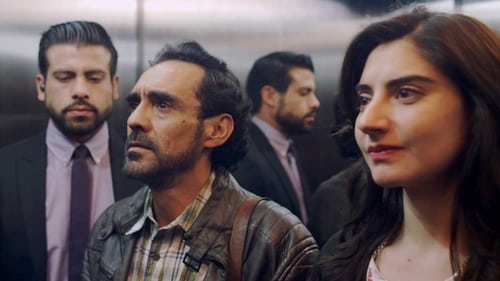
Trajano
Trajano and his daughter Valeria live apart in the midst of the divorce and alimony proceedings with Úrsula, but they always find fun ways to meet and spend time together. Meanwhile, they must fight against a transnational company that intends to introduce a subcutaneous chip to the market. Father and daughter will find a way to move forward together.
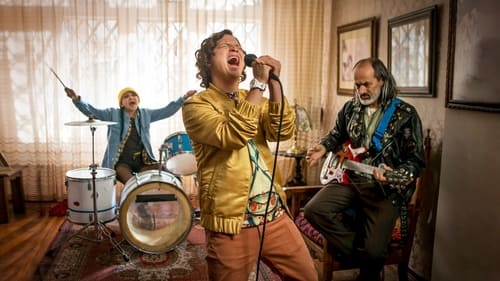
The film tells the story of Ariel, a 21-year-old who decides to form a rock band to compete for a prize of ten thousand dollars in a musical band contest, this as a last option when trying to get money to save their relationship and reunite with his ex-girlfriend, which breaks due to the trip she must make to Finland for an internship. Ariel with her friend Ortega, decides to make a casting to find the other members of the band, although they do not know nothing about music, thus forming a band with members that have diverse and opposite personalities.

David is a journalist who has just entered the “Human Homosexual Rehabilitation Center”. He is responsible for reporting on Julio, the first rehabilitated homosexual, in the interview, David recognizes Julio as a human being and decides to help him escape.

Marcelo Chiriboga
The life and works of Ecuadorian writer Marcelo Chiriboga, a key figure of the Latin American literature and member of the “boom” generation. Through interviews, visits to different cities, archival footage and his most important book, a puzzle is woven that blurs the boundaries between reality and fiction.
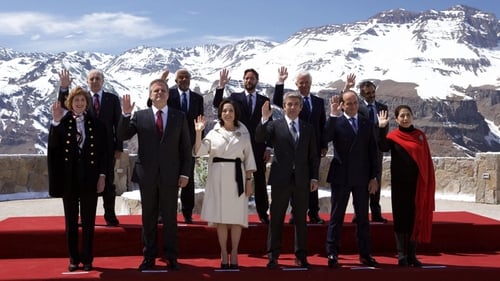
Ecuadorian President
At a summit for Latin American presidents in Chile where the region's geopolitical strategies and alliances are in discussion, Argentine president Hernán Blanco endures political and family drama that will force him to face his own demons.

Coyotero, Machete

Its not about secrets, is hiding them.

Kay
Kay suddenly wakes up in a dark place. He is dying of thirst . He searches for water through an old house which seems to have no exit. Someone has placed him in this world of puzzles that can not be solved and, apparently, he is not alone.

A black comedy that portraits a chain of six romances united by chance. In Tinta Sangre the protagonists are the city of Quito, its characters and its inner world. Loves and heartbreak are the thread of this film, and the constant question that all of them ask is why we call it love when we mean addiction.

Ministro
Elena comes back to Ecuador to help her father overcome his illness. She spends most of her time between drugs and alcohol. While visiting her grandpa in the Andes Elena gets involved in the fight for water access in an indigenous community. She gradually understands that among family secrets, corruption and dark perversions commitment and beauty can emerge.
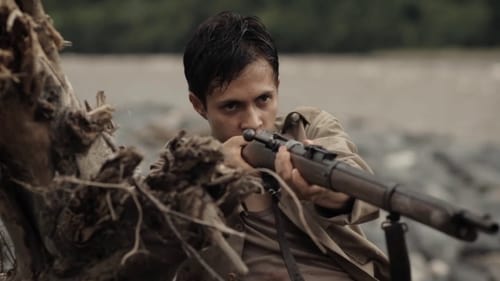
Jorge, a young Ecuadorian, is unexpectedly in the middle of the jungle as an inexperienced soldier. At first, Jorge is confident that military experience makes you a recognized and respected man. But he finds out that the reality is very different; as the private may face neglect, hunger, death and nature, especially human nature. Captive in an enemy camp, Jorge must discover who he has become as he recovers from his injuries and struggles to escape with his fellow prisoner Hugo or stay there under the care of the Peruvian nurse Dolores. Difficult decisions ... beyond the target and border that divides them are abound.
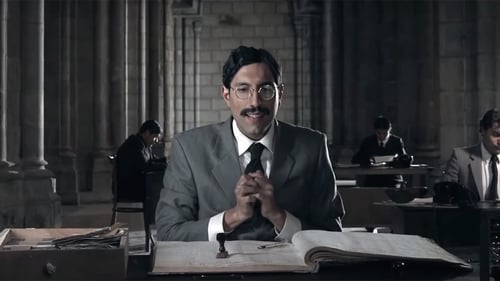
Bernardo lives under the shadow of his mother. Kurt proposes to him to rob Bernardo's bank to buy the Third Reich's currency. On the same day that Bernardo does it, Hitler's regime falls and its currency becomes worthless.

Writer
Based on a real event, where the municipal president, in order to clean the image of his people before a politician's visit, "throws" a group of mentally ill people into the desert.

Journalist
Esperanza and Tristeza both have to get to Cuenca. However, by an unlucky turn of events, the bus they are on gets delayed due to a worker strike. Taking their journey into their own hands, they decide to hitchhike to Cuenca. Along the way they meet interesting characters who help them re-evaluate the purpose of their journey.

Morales
1809-1810: mientras llega el día is a 2004 Ecuadorian historical-dramatic film, directed by Camilo Luzuriaga and starring Marilú Vaca, Aristides Vargas and Gonzalo Gonzalo. The plot is based on the book by Juan Valdano, and revolves around the events that took place in the city of Quito between August 10, 1809, when the First Cry of Independence took place in the Spanish colony of the Presidency of Quito, and on August 2, 1810, when the Massacre of the Próceres occurred in the hands of the peninsular authorities.
